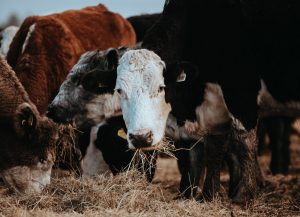
Animal-feed experts are asking the hemp industry to continue developing adequate research and safety data for hemp a nutritional ingredient and calling on state lawmakers to work with federal regulators rather than prematurely allowing hemp as a feed ingredient.
The Association of Animal Feed Control Officials is warning that bringing hemp products to market in animal feed through a patchwork of state laws will lead to inconsistent manufacturing guidelines, unsupported marketing claims across the country, and restriction of interstate and international markets.
Instead, AAFCO — an independent organization that that writes ingredient definitions, label standards and laboratory guidance for state, federal and international feed regulators — is urging states to work with the U.S. Food and Drug Administration’s Center for Veterinary Medicine, along with the National Association of State Departments of Agriculture, livestock and dairy associations, consumer advocacy groups and AAFCO within the formal process for review and approval of hemp and its byproducts for animal nutrition.
To date, Montana has approved legislation for farmers to use hemp in animal feed for pets, horses and other livestock, once approved by the FDA. Nevada recently passed a new law taking effect Oct. 1, clearing veterinarians to recommend and administer hemp and CBD products below 0.3% THC without getting sanctioned by the state licensing board.
AAFCO has issued a formal position paper and call to action on hemp for livestock and companion animal feed, asking hemp industry members to continue researching proposed hemp and hemp byproducts to gather safety and efficacy data for livestock and companion animal feed.
AAFCO is focused specifically on gaining research and safety data for whole hemp plants, hemp seed oil, CBD and other cannabinoids, according to a statement from the organization.
“We understand the hemp industry is eager to enter the animal food market, but we are concerned that not enough research has been completed on these products,” said AAFCO Executive Director Susan M. Hays in a statement.
“That’s why we are urging the hemp industry to conduct appropriate research and submit their results to us for review as a normal step in our ingredient approval process.”
Once enough data has been gathered, AAFCO can formally define hemp and hemp bybroducts as ingredients and provide standards for safe pet and livestock feed. This process starts with its new ingredient definition application.
Thorough scientific review must be completed to ensure nutritional and safety benefits before any ingredient can be used in animal food, Hays said.
Skipping this process could “have adverse impacts on ranchers’ access to markets, on animal health and ultimately on human health when hemp-fed animal products enter the human food chain,” she said.
In February, the Hemp Feed Coalition completed its first submission for hemp to become an approved animal-feed ingredient for consideration by AAFCO and the FDA-CVM.
With the first application under review – a process that could take anywhere from 18 months to four years – the HFC is researching other hemp byproducts, including oil, sediment, hulls, pulp and screenings, to look at their potential as feed ingredients.
The group’s research focus will include the clinical trials necessary to add ruminants – animals such as cattle, sheep and goats – to the submitted AAFCO and FDA-CVM application for hempseed meal.

